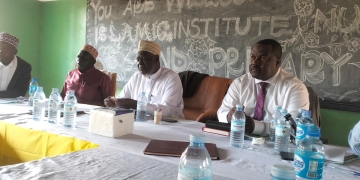President Yoweri Museveni will deliver his 14th address today since in relation to coronavirus and is expected to announce whether schools will stay closed past the extended lockdown.
Schools have been closed across the country since March.
But, as Uganda begins the process of reopening, cabinet is expected to decide the fate of schools and universities and tertiary institutions.
The website understands the Monday cabinet meeting and the President’s address will center around the fate of schools, public gatherings, transport and and curfew measures imposed in the COVID19 fight.
The President will address the nation today Monday 18 at 8pm, senior press secretary Don Wanyama said.
United Nations agencies including UNESCO and UNICEF issued new guidelines on the safe reopening of schools amidst ongoing closures, saying that “schools must look at how they can reopen better.”
The agencies in a joint statement also warned that the widespread closures of educational facilities in response to the COVID-19 pandemic present an unprecedented risk to children’s education and wellbeing, “particularly for the most marginalized children who rely on school for their education, health, safety and nutrition”.
The guidelines offer practical advice for national and local authorities on how to keep children safe when they return to school.
“Rising inequality, poor health outcomes, violence, child labour and child marriage are just some of the long-term threats for children who miss out on school,” said Henrietta Fore, UNICEF Executive Director.
The new guidelines note that while there is not yet enough evidence to measure the impact of school closures on disease transmission rates, the adverse effects of school closures on children’s safety and learning are well documented.
Gains made in increasing access to children’s education in recent decades risk being lost and, in the worse cases, reversed completely.
The best interests of children and overall public health considerations – based on an assessment of the associated benefits and risks to education, public health and socio-economic factors – must be central to national and local authorities’ decisions to reopen schools, the guidelines say.
Schools must look at how they can reopen better – with improved learning and more comprehensive support for children at the school including health, nutrition, psychosocial support and water, sanitation and hygiene facilities.
As countries grapple with when to reopen schools, UNESCO, UNICEF, WFP and World Bank – as part of the Global Education Coalition – urge governments to assess the benefits of classroom-based instruction compared to remote learning, and the risk factors related to reopening of schools, noting the inconclusive evidence around the infection risks related to school attendance.










